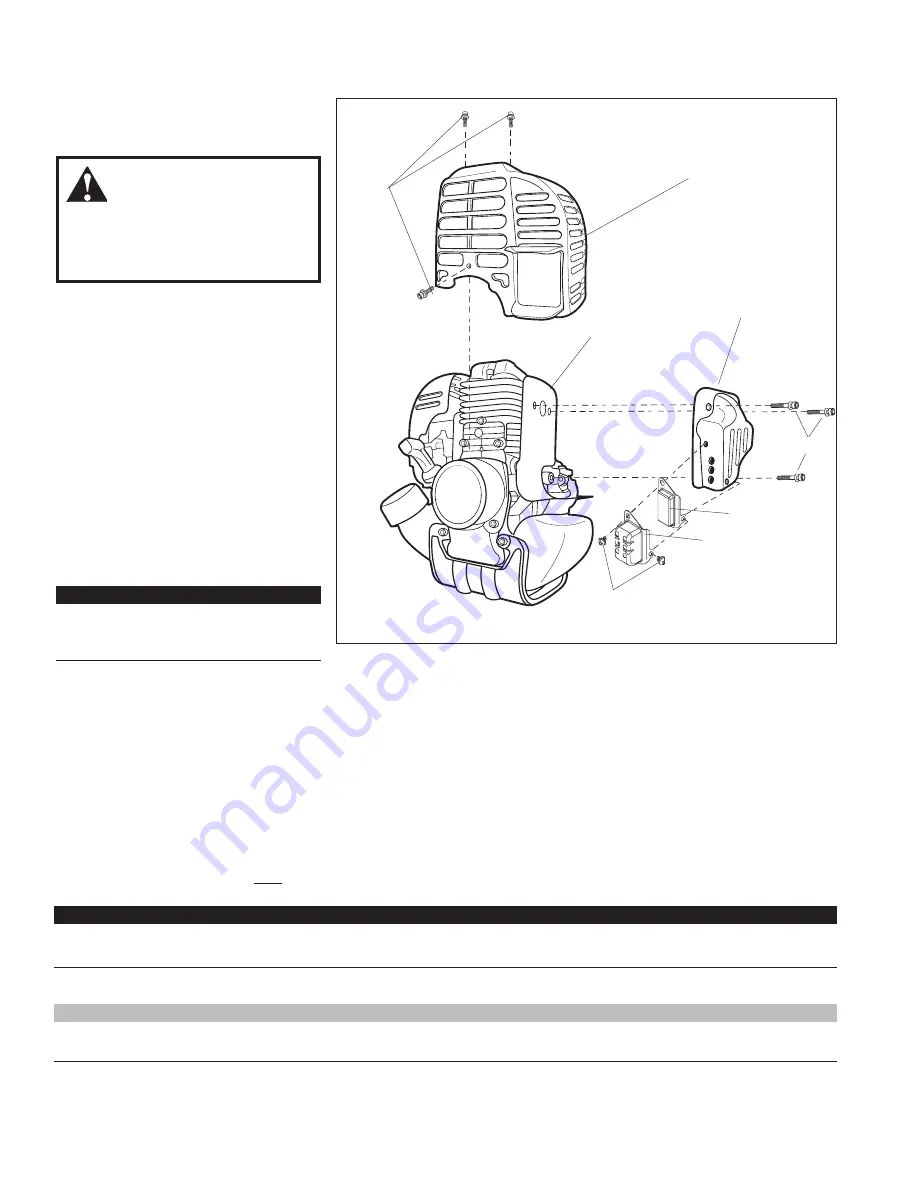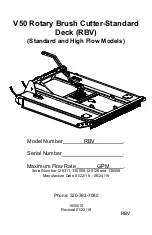
20
Maintenance
(continued)
Engine
Cover
Screws
Engine Cover
Muffler
Muffler Gasket
Muffler Bolts
Spark Arrester Screen
Spark Arrester Cover
Cover Screws
Muffler and spark arrester maintenance
1. With a 3 mm hex wrench remove the
engine cover screws and the engine
cover.
If the engine becomes sluggish and low
on power, check and clean the spark
arrester screen.
IMPORTANT!
If you note excessive carbon buildup,
consult with an authorized servicing
dealer.
WARNING!
Never operate the unit with a
damage or missing muffler or spark
arrester! Operating with a missing or
damaged spark arrester is a fire hazard
and could also damage your hearing.
2. With a 4 mm hex wrench, remove the
3 muffler bolts and the muffler.
3.
With a small flat bladed screwdriver
remove the 2 screws holding the
spark arrester screen and cover to the
muffler.
4. Remove the screen and clean it with a
stiff bristle brush.
5. Inspect the cylinder exhaust port for
any carbon buildup.
6.
Reassemble the spark arrester, muffler
and engine cover in the reverse order
of disassembly.
NOTE:
Every unit is run at the factory and the carburetor is set in compliance with emission regulations. Carburetor adjustments,
other than idle speed, must be performed by an authorized Shindaiwa dealer..
Carburetor Adjustment
Engine Break-In
New engines must be operated a minimum duration of two tanks of fuel break-in before carburetor adjustments can be
made. During the break-in period your engine performance will increase and exhaust emissions will stabilize. Idle speed can
be adjusted as required.
High Altitude Operation
This engine has been factory adjusted to maintain satisfactory starting, emission, and durability performance up to
1,100 feet above sea level (ASL) (96.0 kPa). To maintain proper engine operation and emission compliance above
1,100 feet ASL the carburetor may need to be adjusted by an authorized Shindaiwa service dealer.
IMPORTANT!
If the engine is adjusted for operation
above
1,100 feet ASL, the carburetor must be re-adjusted when operating the
engine
below
1,100 feet ASL, otherwise severe
engine damage may result.













































